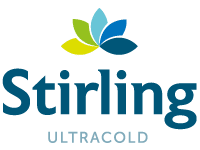Recently, the parties to the Montreal Protocol met in Vienna, Austria to discuss a multi-national agreement to further reduce global warming. Diplomats and leading foreign ministers from around the globe are closer than ever to an agreement that would ban the use of refrigerant hydrofluorocarbons (HFC’s). HFC’s are more powerful than carbon dioxide at warming the planet, and a ban could avoid billions of tons of carbon-dioxide-equivalent emissions.
Scientists and international leaders on climate change have referred to this agreement as the single most important 2016 initiative to combat greenhouse-destroying gasses. In fact, United States Secretary of State John Kerry noted at the conference that climate initiatives such as this are as important as defeating terrorism, “because it has the ability to literally save life on the planet itself.”
As a result of climate change initiatives like those already agreed-upon in the Montreal Protocol, nearly 100 of the most ozone-depleting substances have been phased out of use. The international eradication of HFC’s could save the equivalent of emissions from nearly 300 coal-fired power plants each year.
The final 2016 meeting of the parties to the Montreal Protocol is set to take place in Rwanda in November. During that time, parties hope to finalize an action plan to phase down and eventually eliminate HFC usage.
Staying Ahead of the Curve
We are pleased to see global initiatives that support the ban of HFC’s and see this as a very important step toward environment sustainability and reduction of ozone depletion. As I pointed out last year’s blog post, Pioneering the Long Journey to U.S. Hydrocarbon Refrigerant Approval, Stirling Ultracold offered the first freezer in the United States to use 100% natural refrigerants – providing an ozone-friendly alternative to HFC refrigerants that emit harmful greenhouse gasses.
We embarked upon a rigorous 3-year approval process in 2012 through the EPA’s Significant New Alternatives Policy (SNAP) program and we were granted approval to launch our all-hydrocarbon-based refrigerant cooling system in 2014. We’re proud to have led the U.S. market toward the use of hydrocarbon refrigerants and are pleased to see others moving in this direction.
With pending global initiatives driving toward a future reduction and phase out of HFC, leaders in research organizations and institutions should be looking toward the adoption of alternatives. For the sustainability-minded, this is about more than just being prepared for compliance with future initiatives, but is a priority for protecting our atmosphere. Either way, it should be noted that Stirling Ultracold has been successfully offering a 100% natural refrigerant solution for over 2 years. So there’s really no reason to delay plans to phase out HFCs when buying and replacing ULT freezers.
We will continue to keep a close eye on the discussions in Rwanda this coming November and we look forward to more stringent global regulations against harmful HFC’s.
Sources:
Remarks at the Montreal Protocol High-level Segment (US Department of State)
The world is poised to take the strongest action of this year against climate change (Washington Post)








